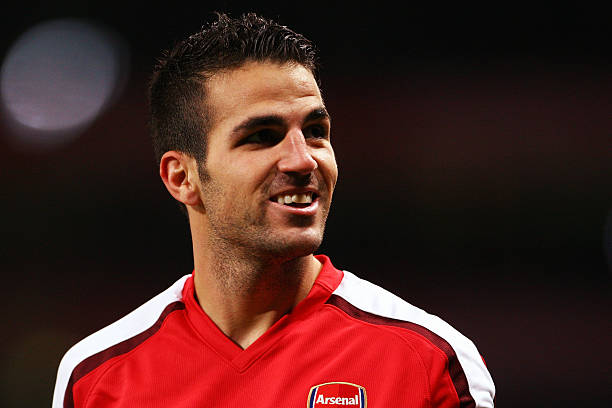In an emotionally-charged announcement, ex-Arsenal star Cesc Fabregas has officially confirmed his retirement from professional football at the age of 36.
Fondly remembered for his significant contributions to Arsenal, his departure from the game marks the end of an era.
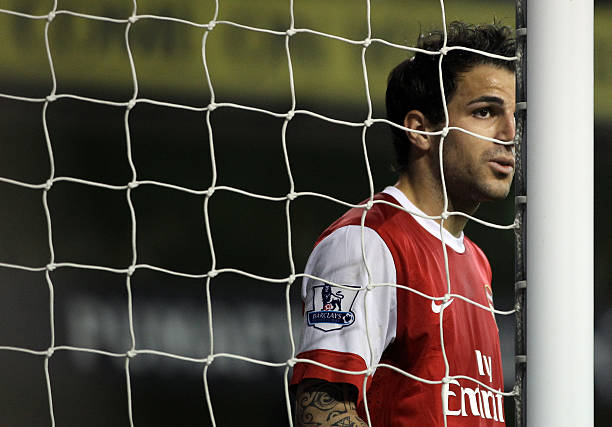
- Cesc Fabregas, former Arsenal midfielder, retires from professional football at the age of 36.
- Fabregas, with 303 appearances for Arsenal, leaves a significant mark on the club’s history.
- Post-retirement, Fabregas is set to start coaching Como 1907’s youth teams.
Cesc Fabregas bids adieu to football
It is with great sadness that the time has come for me to hang up my playing boots.
From my first days at Barca, Arsenal, Barca again, Chelsea, Monaco and Como, I will treasure them all.
From lifting the World Cup, the Euros, to winning everything in England and Spain and… pic.twitter.com/Wuwj04WanB— Cesc Fàbregas Soler (@cesc4official) July 1, 2023
In an emotionally-charged announcement, ex-Arsenal star Cesc Fabregas has officially confirmed his retirement from professional football at the age of 36.
Fabregas’ retirement closes an illustrious chapter of football that spanned two decades.
A prominent figure in the world of football, Fabregas’ career saw him grace the pitches for Barcelona, Chelsea, Monaco, and Como, earning significant acclaim at each club.
However, it was his tenure at Arsenal that truly solidified his reputation as a world-class player.
Beginning his senior career at Arsenal, Fabregas quickly became an integral part of the squad, making a staggering 303 appearances between 2003 and 2011. His dedication to the game, coupled with his exceptional skills on the field, earned him a place in the hearts of Arsenal fans worldwide.
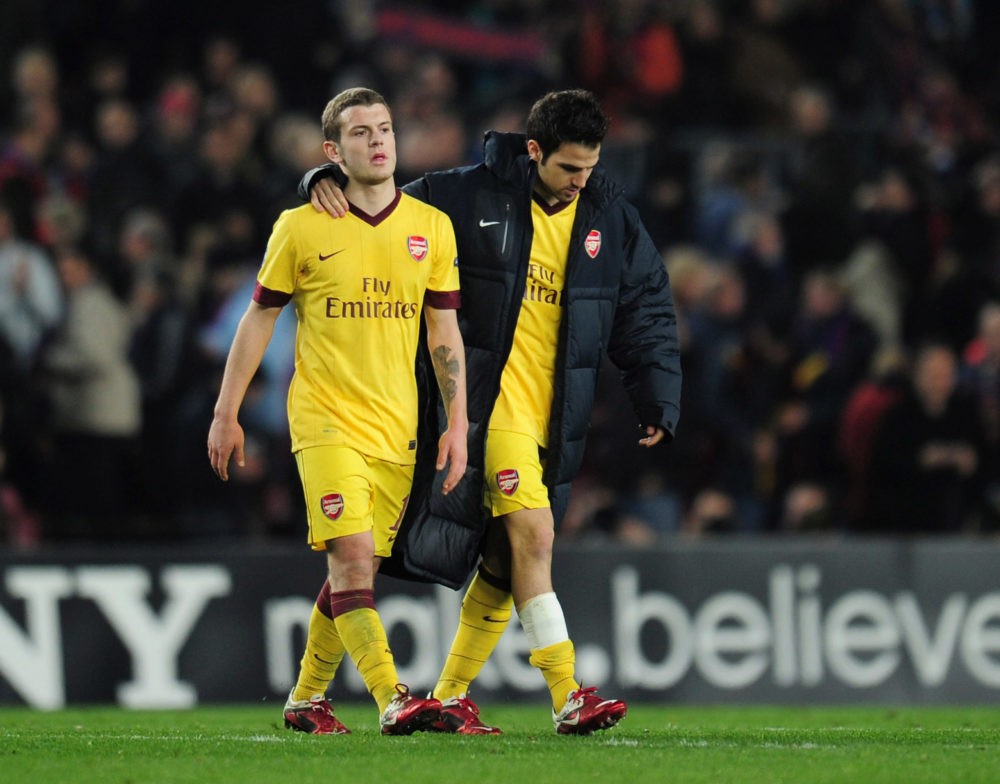
However, the midfielder’s journey didn’t stop at Arsenal.
Returning to his homeland was inevitable. Barcelona came knocking in 2011 and after much wrangling, a transfer was agreed. In a midfield boasting Iniesta, Xavi, Busquets and Messi, the La Masia graduate won a plethora of trophies and was even on the scoresheet as the Catalans beat Santos to win the 2011 Club World Cup.
In 2014, a new challenge beckoned. Chelsea paid £30 million for Fabregas after Arsenal refused the chance to re-sign him. He was instrumental in a title-winning campaign under Jose Mourinho. Three years later, under Antonio Conte, he won the league again.
Moves to Monaco and Como followed and now he’s ready to start life on the other side of the white line.
Fabregas also showcased his prowess on the international stage, winning 110 caps for Spain and playing an integral part in securing two Euro titles on either side of their 2010 World Cup victory.
He even left his mark at the World Cup in South Africa. Having watched from the bench for much of the tournament he replaced the injured David Villa in the final and provided the assist for Andres Iniesta to score the winning goal against Holland.
The next chapter: Coaching

Not one to completely sever ties with the sport he loves, Fabregas now embarks on his next venture: coaching.
He will be crossing the white line to coach Como 1907’s B and Primavera youth teams.
Cesc Fabregas at Arsenal: The Evolution of a Football Maestro
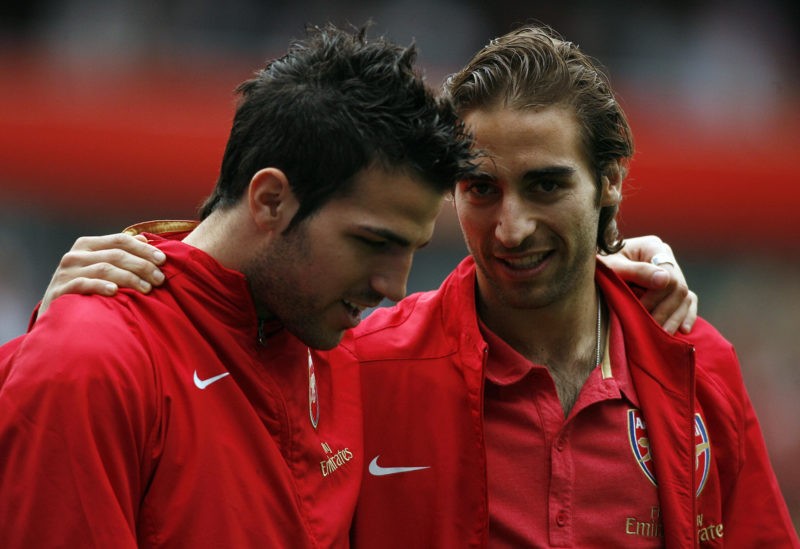
Cesc Fabregas’ time at Arsenal marked the rapid transformation of a precocious talent into one of the world’s top footballers.
It was during this time that the Spanish maestro truly earned his stripes, becoming the heartbeat of a dynamic Arsenal side under Arsene Wenger’s tutelage.
Fabregas’ tenure at Arsenal, which spanned eight years from 2003 to 2011, is a testament to his unique footballing talent and his dedication to the North London club.
Fabregas: The Young Prodigy
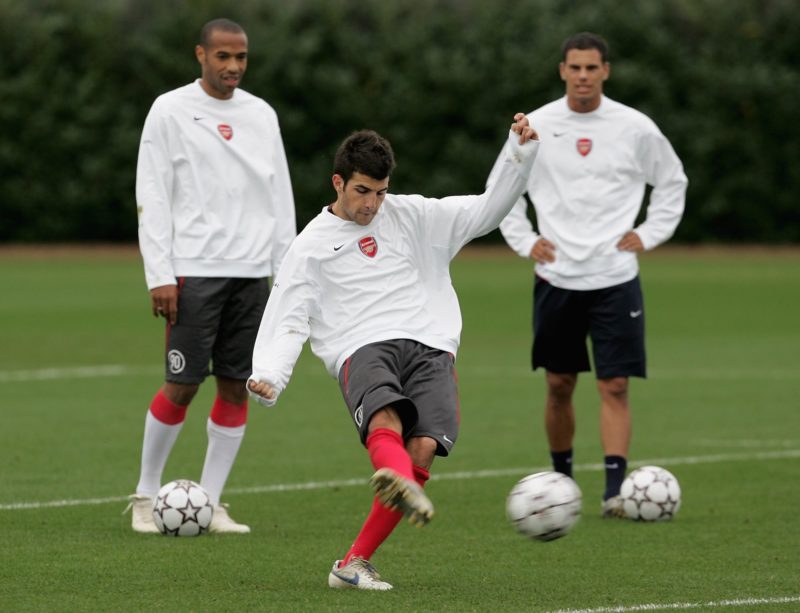
Arriving at Arsenal as a 16-year-old in 2003 from Barcelona’s famed La Masia academy, Fabregas quickly demonstrated his innate talent and maturity, making his debut in the League Cup against Rotherham United, and becoming the youngest ever player to feature for Arsenal’s first team.
Over time, the Catalan native asserted himself as a key cog in the Arsenal midfield, combining technical skill, vision, and an impressive work ethic, which saw him become the youngest goal scorer in Arsenal’s history in a match against Wolverhampton Wanderers.
Following the departure of Arsenal legends like Patrick Vieira and Robert Pirès, Fabregas’ role within the team expanded. Wenger entrusted the young Spaniard with orchestrating Arsenal’s game from the midfield, and Fabregas did not disappoint.
He quickly evolved into one of the Premier League’s finest playmakers, renowned for his ability to dictate the pace of the game, his pinpoint passing, and his knack for scoring goals when it mattered the most.
During the 2007/08 season, Fabregas demonstrated his leadership skills by captaining the side in the absence of William Gallas. His performances during this season, scoring 13 goals and providing 23 assists in all competitions, underlined his critical importance to the team.
In the subsequent years, despite Arsenal’s struggles to claim silverware, Fabregas consistently delivered high-quality performances, cementing his place as one of Arsenal’s most beloved players.
Legacy at Arsenal
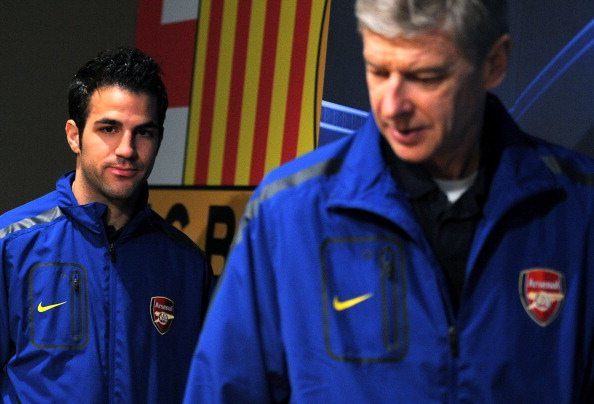
Fabregas’ time at Arsenal was marked by personal triumphs against the backdrop of the team’s collective challenges.
His eight years at the club witnessed the transition from the ‘Invincibles’ era to a period characterised by a frustrating lack of trophies.
Despite this, Fabregas left a lasting legacy at Arsenal, embodying the club’s commitment to attacking, beautiful football, and the nurturing of young talent into world-class players.
Cesc Fabregas’ journey at Arsenal was more than just a phase in his career; it was a defining period that shaped him into the player he became.
His development from a young hopeful to a world-class midfielder was testament to his talent and work ethic, as well as the faith instilled in him by Wenger and the club.
Though he departed for Barcelona in 2011, Fabregas’ contribution to Arsenal’s history remains indelible, a shining chapter in the annals of the club and the Premier League.

